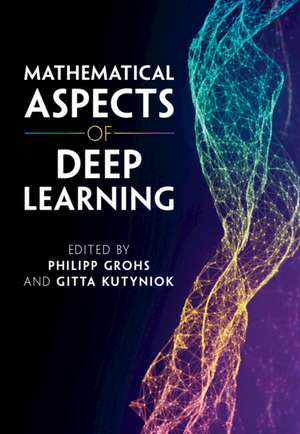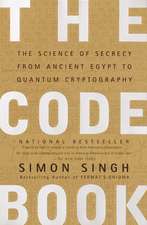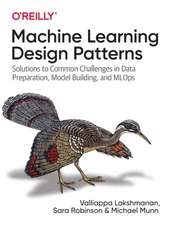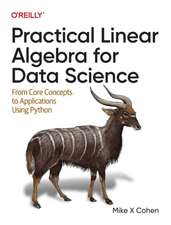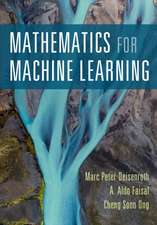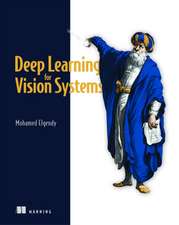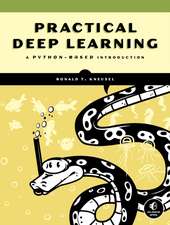Mathematical Aspects of Deep Learning
Editat de Philipp Grohs, Gitta Kutynioken Limba Engleză Hardback – 21 dec 2022
Preț: 500.45 lei
Preț vechi: 543.97 lei
-8% Nou
Puncte Express: 751
Preț estimativ în valută:
95.77€ • 99.62$ • 79.07£
95.77€ • 99.62$ • 79.07£
Carte disponibilă
Livrare economică 24 martie-07 aprilie
Livrare express 07-13 martie pentru 52.52 lei
Preluare comenzi: 021 569.72.76
Specificații
ISBN-13: 9781316516782
ISBN-10: 1316516784
Pagini: 492
Dimensiuni: 174 x 251 x 26 mm
Greutate: 1.07 kg
Ediția:Nouă
Editura: Cambridge University Press
Colecția Cambridge University Press
Locul publicării:Cambridge, United Kingdom
ISBN-10: 1316516784
Pagini: 492
Dimensiuni: 174 x 251 x 26 mm
Greutate: 1.07 kg
Ediția:Nouă
Editura: Cambridge University Press
Colecția Cambridge University Press
Locul publicării:Cambridge, United Kingdom
Cuprins
1. The modern mathematics of deep learning Julius Berner, Philipp Grohs, Gitta Kutyniok and Philipp Petersen; 2. Generalization in deep learning Kenji Kawaguchi, Leslie Pack Kaelbling, and Yoshua Bengio; 3. Expressivity of deep neural networks Ingo Gühring, Mones Raslan and Gitta Kutyniok; 4. Optimization landscape of neural networks René Vidal, Zhihui Zhu and Benjamin D. Haeffele; 5. Explaining the decisions of convolutional and recurrent neural networks Wojciech Samek, Leila Arras, Ahmed Osman, Grégoire Montavon and Klaus-Robert Müller; 6. Stochastic feedforward neural networks: universal approximation Thomas Merkh and Guido Montúfar; 7. Deep learning as sparsity enforcing algorithms A. Aberdam and J. Sulam; 8. The scattering transform Joan Bruna; 9. Deep generative models and inverse problems Alexandros G. Dimakis; 10. A dynamical systems and optimal control approach to deep learning Weinan E, Jiequn Han and Qianxiao Li; 11. Bridging many-body quantum physics and deep learning via tensor networks Yoav Levine, Or Sharir, Nadav Cohen and Amnon Shashua.
Descriere
A mathematical introduction to deep learning, written by a group of leading experts in the field.
